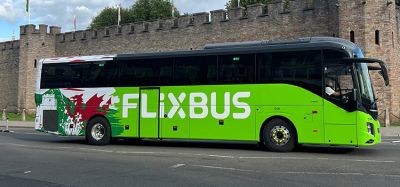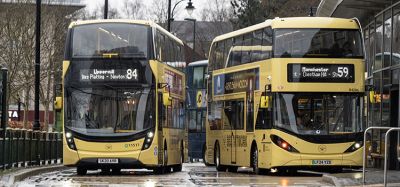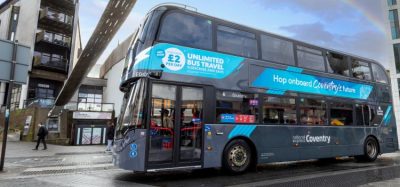First car body shell for the Lucknow Metro Train unveiled
- Like
- Digg
- Del
- Tumblr
- VKontakte
- Buffer
- Love This
- Odnoklassniki
- Meneame
- Blogger
- Amazon
- Yahoo Mail
- Gmail
- AOL
- Newsvine
- HackerNews
- Evernote
- MySpace
- Mail.ru
- Viadeo
- Line
- Comments
- Yummly
- SMS
- Viber
- Telegram
- Subscribe
- Skype
- Facebook Messenger
- Kakao
- LiveJournal
- Yammer
- Edgar
- Fintel
- Mix
- Instapaper
- Copy Link
Posted: 9 September 2016 | Katie Sadler, Digital Content Producer, Intelligent Transport | No comments yet
Alstom has unveiled the first car body shell of the Lucknow Metro Train at its plant in Chennai, India, where the metro trainsets are currently being produced.
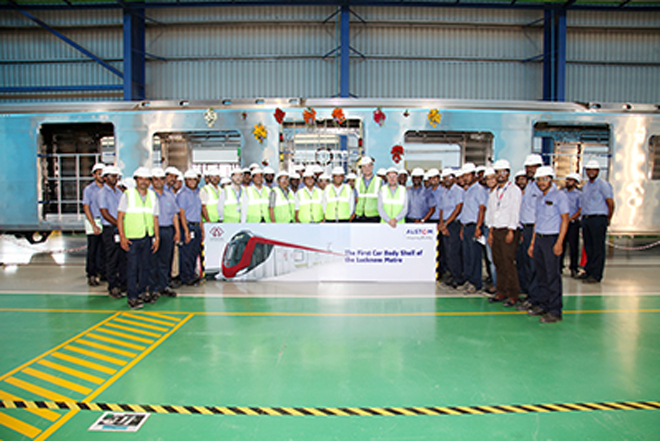

Alstom has unveiled the first car body shell of the Lucknow Metro Train at its plant in Chennai, India, where the metro trainsets are currently being produced.
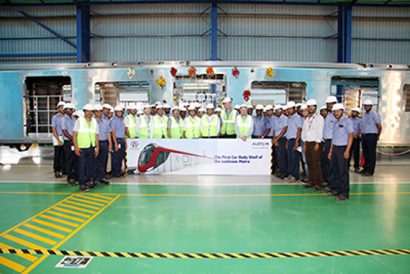

The Lucknow Metro contract was awarded by Lucknow Metro Rail Corporation (LMRC) in September 2015. Under this contract, Alstom will supply 20 Metropolis trainsets, each composed of four metro cars. Alstom is also providing Urbalis, its Communication Based Train Control (CBTC) solution which controls the movement of the trains, enabling them to run at higher frequencies and speeds.
Designs for the new Lucknow Metro Train of the Metropolis type were unveiled at the end of May 2016 reflecting the city’s cultural richness.
First Lucknow Metro Trainset delivered in November 2016
The Lucknow Metropolis will offer 186 seats in longitudinal configuration and offer two dedicated zones for passengers with reduced mobility. Screens will be placed at convenient locations throughout the metro displaying up-to-date travel information. Passenger safety features will include emergency communication, including a direct talkback facility to the train operator and CCTV transmitting images to a centralised security control room.
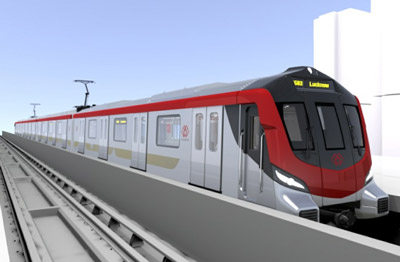

Alstom expects to deliver the first trainset of this order before the end of November 2016.
Once complete, Lucknow Metro mass public transport system will cover a distance of 22km between Chaudhary Charan Singh International Airport and Munshipulia. The first phase is scheduled to open in late 2016
The line is expected to carry about 430,000 passengers per day in the first year, increasing to over 1 million by 2030.
Related topics
Fleet Management & Maintenance
Related modes
Metro
Related cities
India
Related organisations
Alstom




